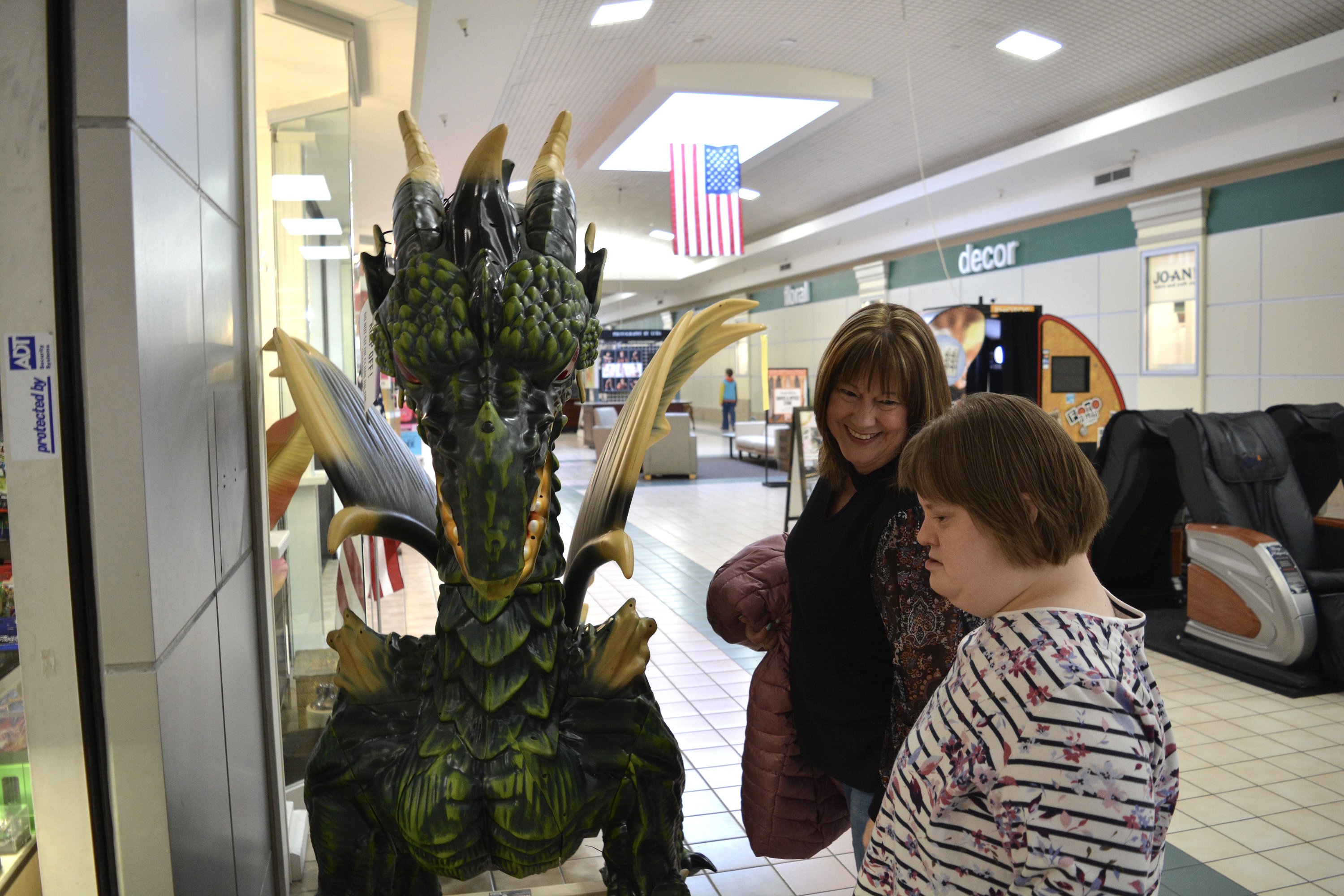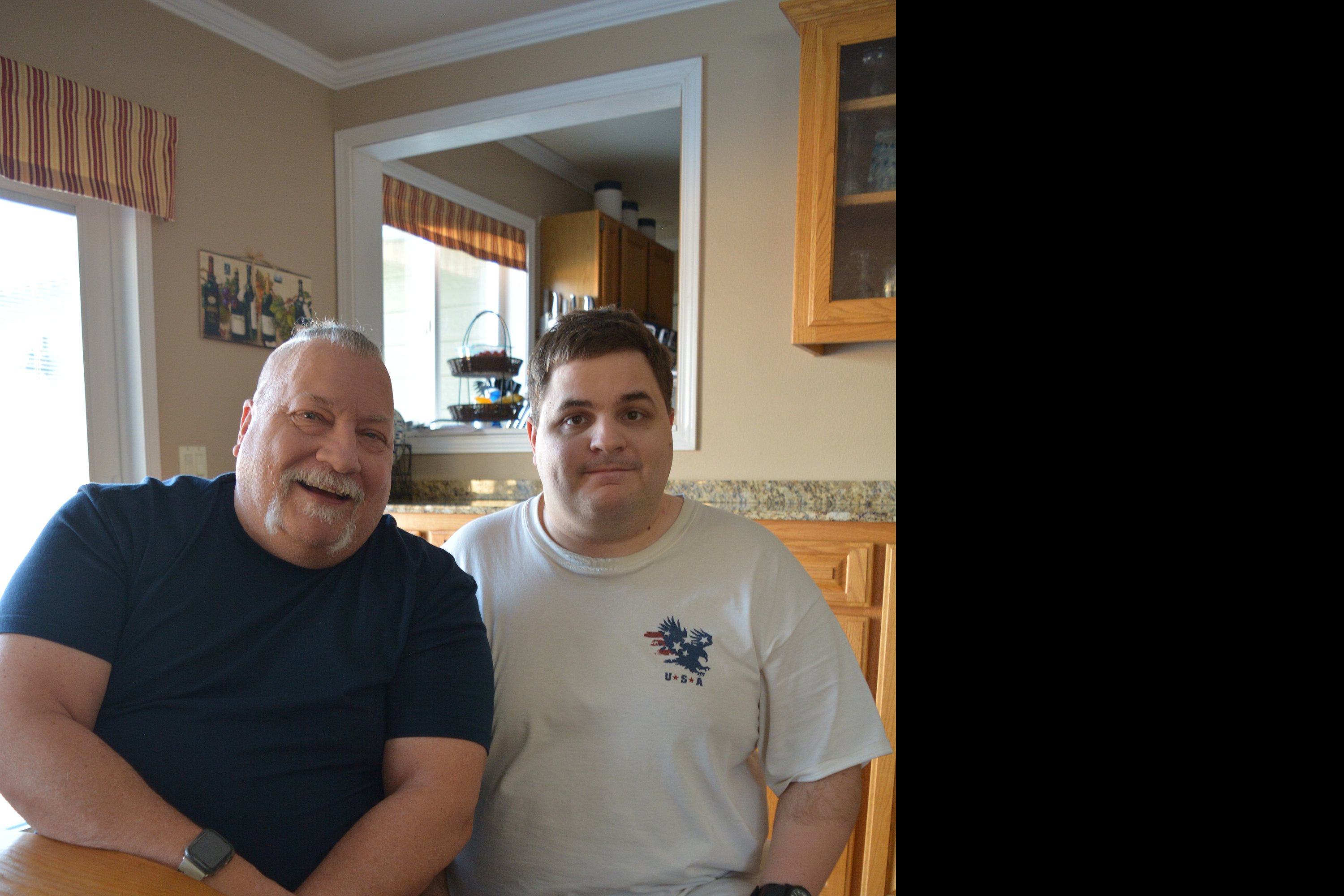'What’s going to happen once I’m gone?'
CAROLYN BOSTICK | Hagadone News Network | UPDATED 1 year, 2 months AGO
Carolyn Bostick has worked for the Coeur d’Alene Press since June 2023. She covers Shoshone County and Coeur d'Alene. Carolyn previously worked in Utica, New York at the Observer-Dispatch for almost seven years before briefly working at The Inquirer and Mirror in Nantucket, Massachusetts. Since she moved to the Pacific Northwest from upstate New York in 2021, she's performed with the Spokane Shakespeare Society for three summers. | March 10, 2024 1:08 AM
“What’s going to happen once I’m gone?”
That’s the question many families and caregivers of people with disabilities have when contacting agencies like Disability Action Center NW.
March is developmental disabilities month. The National Association of Councils on Developmental Disabilities uses this month to address work still needed to remove barriers for greater inclusion in society and the support needed to achieve them.
“We’ve got a month where, in reality, anybody who experiences any kind of disability faces challenges that society has not been stellar in addressing,” Mark Leeper, executive director for the Disability Action Center NW said.
One of the scariest considerations for caregivers of people with disabilities is planning in the event of their passing.
Adults with disabilities are locked into rigid asset limits which have become more difficult for many families to navigate as inflation has increased the cost of living.
To qualify for disability benefits, countable resources must not be worth more than $2,000 for an individual or $3,000 for a couple, according to the U.S. Supplemental Security Income.
Families can potentially have money or property set aside under a Plan to Achieve Self-Support and up to $100,000 of funds in an Achieving a Better Life Experience account through a state ABLE program.
The problem can often be in finding someone who will take on the responsibility of running a trust for the individual with disabilities.
For Amber Newton, her main frustration is there isn’t an option that fully maps out what 32-year-old daughter Mikayla's life would look like in the event of her and her husband’s untimely deaths.
Mikayla is nonverbal and routines are very important to her happiness.
“We’re in the process now of doing a trust for her, but whether or not you have money in a trust, that doesn’t necessarily pay for her lodgings," Newton said. "In our situation, we’re going to have her older sister responsible."
Listening to country music, going to dances at Specialized Needs Recreation and watching movies are Mikayla’s favorite ways to socialize, but finding peers has become more difficult as she has aged out of youth programs.
Last year, the Spirit Lake family had a gap in day programs as Mikayla transitioned from Tesh, Inc. to Chrysalis, and Amber Newton realized just how important consistency was.
“Mikayla doesn’t have a lot of hobbies, but she does like mall walking or to take her to the movies, or Starbucks just to get out and about with somebody besides Mom all the time,” Newton said.
The worry is, in the event of the worst happening, even with basic needs met for Mikayla, how do you plan for a social life in a will?
“I worry that even if we found a place, they wouldn’t be as adamant at keeping her activities up, keeping her involved in other things outside of the home," Newton said. "If I’m not around, who’s going to coordinate some fun?"
Options like group homes and certified family homes are a possibility, but anticipating future needs can be complex.
Jumping through hoops
Jessica Gross, chair and coordinator of Relatives as Parents Inc., said one of the families connected to her nonprofit had to be re-diagnosed with autism after a change in a client's caregiver. His disability has not changed, but it was the only way to qualify for much-needed services in an already difficult time of transition.
“They asked, 'When did this start?'" Gross said. "He was born like this. This is who he is, this is part of him."
Relatives as Parents focus on guiding fictive kin and extended family members taking on responsibilities when a parent passes away or is unable to continue care.
For folks with disabilities who can work, they have to stick to the $2,000 monthly asset limit.
“A lot of these jobs don’t make much and if they make over a certain amount, they take that from your disability (benefits) and it can cut your disability off, which can cut you off from your other resources,” Gross said.
Every item a person with disabilities receives while on benefits, including even things like birthday presents, needs to be deducted.
“We’ve had a lot of people say, 'The system is rigged,'" Gross said. "You’re going to have to supplement their income and help them buy toilet paper or groceries or help them do something else, because on just the disability (benefits), if they’re able to be in a home or you can get them into an apartment, they’re always going to need that additional assistance."
Future planning
Among Disney mementos outside the Sylwester home, a sign placed in the window indicates a member of the household may be nonverbal.
Scott Sylwester of Hayden said the Disney effects and "In case of emergency" sign are for his son, Timmy.
Contemplating his son's future after the event of his and his wife’s deaths has required a series of tough conversations.
He and his wife haven’t been completely aligned in their hopes for their son’s future.
“She’s always thinking ahead and I’m thinking now,” Sylwester said.
Contemplating group homes and other options is just one part of the complicated process.
As the parent liaison with Chrysalis, he’s been trying to figure things out with his family and also help others dive into the topic.
Currently, the family is working on a trust and will to plan for the future, but the concern is that a lot of the responsibilities will still fall on Timmy’s sister.
Still, Sylwester said he believes more resources need to be available to offer support during the complicated process of estate planning and providing for family members with disabilities beyond a caregiver’s passing; the attitude toward disability issues needs to change.
“It’s hidden," he said. "It’s buried and we gotta unbury it."
Information: Idaho Developmental Disabilities Council: https://icdd.idaho.gov/
Family caregiver resources on where to start for a number of resources can be found here: https://www.idaho.gov/family-records/disability/
MORE FRONT-PAGE-SLIDER STORIES

After 15 years, One Site for Seniors says farewell
Bonner County Daily Bee | Updated 4 days, 11 hours ago

Idaho struggles to increase providers for Alzheimer’s patients
Coeur d'Alene Press | Updated 2 weeks, 2 days ago
ARTICLES BY CAROLYN BOSTICK

Students get agricultural education at Farm to Table event
A bushel of wheat has about one million wheat kernels and weighs 60 pounds. One bushel of wheat will yield about 42 pounds of white flour which can then be used to make 62-70 loaves of bread or 42 pounds of pasta. After getting some background on wheat in the grain building at Farm to Table Wednesday, student Ethan Barney had one goal: grind as much of the kernels as he could before the time was up.

Coeur d'Alene School District to fill board vacancy by July
The Coeur d’Alene School Board accepted the resignation of trustee Allison Anderton at board meeting Monday at the Midtown Meeting Center. The Zone 1 seat has been vacant since April 23 and the board has until July to fill the interim position.

Wooden boats from 'On Golden Pond' visit Hagadone Marine Group
Wooden boats are a time-honored tradition for their craftsmanship and aesthetic. Two iconic boats from the 1981 film, "On Golden Pond," the Mariah and the Thayer IV have made their way to the Hagadone Marina Group showroom for the summer.






